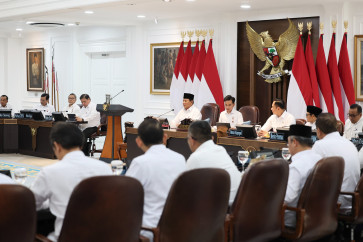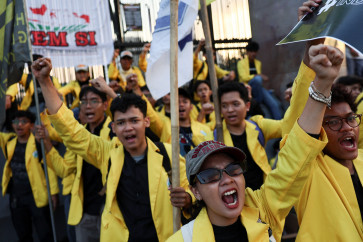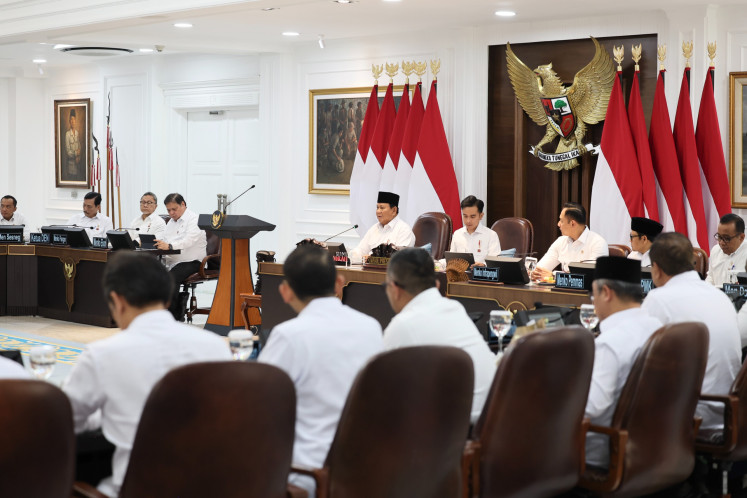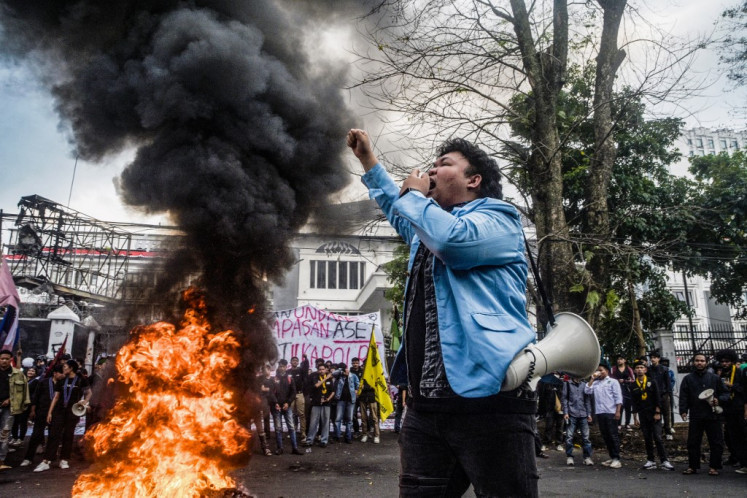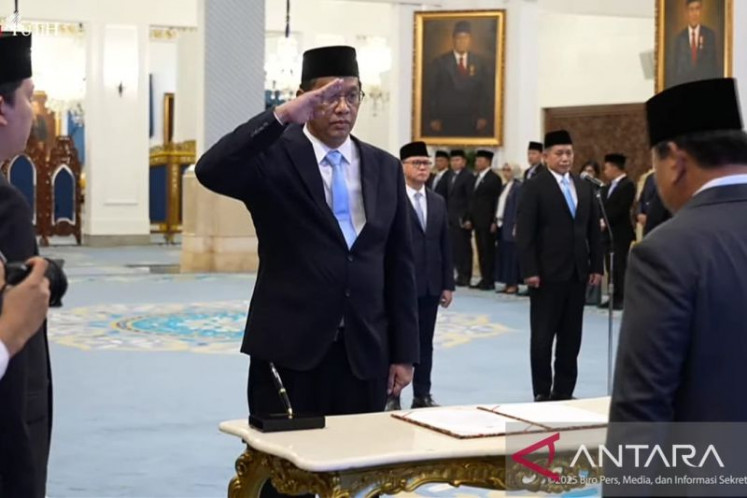Popular Reads
Top Results
Can't find what you're looking for?
View all search resultsPopular Reads
Top Results
Can't find what you're looking for?
View all search resultsEstablishing Indonesia's defense posture amid global race
Modernizing Indonesia's defense industry toward self-sufficiency is necessary to determine the country's defense posture.
Change text size
Gift Premium Articles
to Anyone
D
efense policy and strategy are manifested in the grand design of the defense posture that is employed to prevent war and to fight it, should all attempts to avoid it fail.
During traditional wars, armed conflict was expressed in physical activities and confrontation. This warfare strategy shifted during the Cold War, which put intelligence activities at the center of state defense. The concept of asymmetric warfare found a foothold during this period. The globalization that brought the Cold War to an end introduced at the same time a new concept of war called hybrid warfare, primarily characterized by the use of hi-tech military equipment.
The fact is that the rapid development of weapons technology has, by all means, implicated the value of the deterrent effects offered by so-called hi-tech armament system that once led to success on the battlefield. Thus, there has never been any country that can proclaim everlasting victory.
Indeed, hybrid warfare has added to the complexity of conflicts. Researchers from the Multinational Capability Development Campaign (MCDC), a pro-West organization, describe this complexity as: “Our common understanding of hybrid warfare is underdeveloped and therefore hampers our ability to deter, mitigate and counter this threat.”
For Indonesia, it is important to differentiate the nature of wars because the country adheres to the foreign policy principle of bebas aktif (free and active). Indonesia is a nonaligned country, so it is neither part of nor even leans toward any alliance. This means Indonesia cannot avoid a potential threat of war by seeking the protection of a certain power. Neither does it allow itself to become directly involved in a war over power struggles.
Indonesia’s defense posture is thus designed to enable the Indonesian Military (TNI) to maintain territorial integrity while empowering its defense force to tackle potential internal, external and combined threats (transnational crimes, terrorism and asymmetric warfare), and these combined with hi-tech military armaments (hybrid warfare). Indonesia’s defense outlook also corresponds with geopolitical and geostrategic dynamics.
Learning from this situation, developing a self-sufficient defense force is clearly the way to go; otherwise, Indonesia will find it difficult to procure and modernize its national defense weaponry and systems. Worse, Indonesia might see the its defense capability weaken, which could eventually create insecurity in the face of potential threats.
To equip a self-sufficient defense force, Indonesia must develop a strong defense industry, bearing in mind the maxim “si vis pacem, para bellum” (if you want peace, prepare for war), which underscores the importance of a national defense strategy to achieving peace.
The main constraint to designing Indonesia’s defense posture is funding. To compare, the United States set its defense spending at US$728.5 billion for the 2022 fiscal year. This figure is three times China’s defense budget ($252 billion) and almost 12 times Russia’s defense budget ($62 billion). It is even higher than five years of Indonesia's state budget.
Besides the budget for defense procurement, the US has also allocated 12 percent of its budget to research and development (R&D) in hi-tech and updated defense equipment. This policy has no doubt ranked the US as the world’s No. 1 manufacturer of defense equipment.
Citing 2017 data from the Congressional Research Service (updated per 2020), the US has the largest defense R&D budget in the world with $55.44 billion. It is followed by South Korea, whose defense spending is higher than that of the United Kingdom, Germany or France. Turkey, whose defense industry has shown significant growth, is sixth.
In the Indonesian context, it is necessary to strengthen the national defense industry, not just so it can be a driver of the domestic economy, but above all, as part of the country’s strategy to meet the goal of establishing the national defense posture, which concerns more than war.
Towards this goal, the government has launched Defense Industry Indonesia (Defend ID), a holding company for the defense industry comprising of four subsidiaries under state-owned PT Len Industri as the parent company. All entities in Defend ID have their own platforms that are closely tied to national resilience and defense: air platform (aircraft maker PT Dirgantara Indonesia); ground platform, heavy equipment, weaponry and munitions (PT Pindad); marine platform (PT PAL); electronic platform (PT Len Industri); and high-energy materials processing platform (PT Dahana).
The legal basis for the establishment of Defend ID is Government Regulation (PP) No. 5/2022. As stated on the Len Industri website, the long-term goal of this holding company is to create self-sufficiency in defense and defense procurement, especially regarding the TNI and the National Police as the end users. The mechanism to achieve this goal is the integration of C5ISR-supporting industries with energy materials, as well as the development of supply chains.
Through the formation of Defend ID, we can thus expect the consolidation of all national players in the defense industry, which is in line with the mandate of President Joko Widodo, as conveyed during the announcement of the holding company on April 20, 2022. This much-needed consolidation will improve the capacity of every actor involved in producing defense equipment that meets the standards.
The consolidation also aims to improve the quality of human resources and technology, so that Indonesia can master the technologies and win the trust of consumers.
Of course, the establishment of this holding company cannot be separated from the government's priority programs, which aim to realize economic independence by empowering the country’s strategic sectors. As Defense Minister Prabowo Subianto put it, the holding company’s target “is to make Indonesia among the top 50 of the world's defense industries”.
This spells optimism in navigating the strategic defense industry to a new phase. After all, efforts to prevent war must be preceded by our ability to survive.
***
The writer is deputy defense minister and president commissioner of Defend ID.


